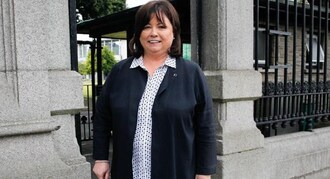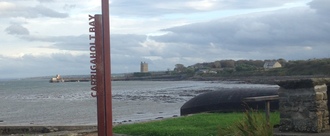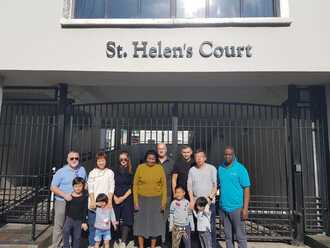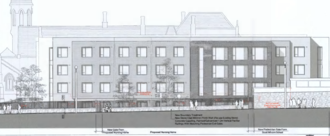- Featured
- Animal Rights
- Anti-racism
- Arts & Culture
- Children
- Climate
- Corporate accountability
- Crime
- Disability rights
- Economic
- Education
- Environment
- Food and Sustainable Production
- Gender Equality
- Governance and Transparency
- Health
- Housing
- LGBT Rights
- Mental health
- Northern Ireland
- Planning
- Privacy and Data Protection
- Rural Inequality
- Social Justice
- Trade
- Transport and Infrastructure
- Workers' Rights
- More
-
Stand with Slave Free ChocolateConsumers need to pressure cocoa companies to address child labor and farmer poverty IMMEDIATELY. All people should be treated fairly, not mistreated or abused, just to make a delicacy for someone else. We want to send a message to big chocolate companys to purchase cocoa from farmers who use fair work practices. So please sign my petition, buy fair-trade chocolate only, and send letters to these companys to inform them of your unhappiness with their disregard for human rights. Choose Fairtrade Labels. https://www.greenamerica.org/end-child-labor-cocoa/chocolate-scorecard In 2010, Green America launched the Raise the Bar! Hershey campaign with allies, demanding that Hershey take steps to address the issue of child labor in their supply chain. Thanks to sustained pressure from Green Americans and Hershey consumers, the two-year campaign culminated with a commitment from Hershey to move to 100% ethically sourced cocoa by 2020. The Raise the Bar! Hershey campaign demonstrates how powerful a united consumer voice is. We must continue to build on the success of the Hershey campaign, and pressure other leaders in the cocoa industry to make serious commitments to eradicate child labor.18 of 100 SignaturesCreated by Lorraine Carolan
-
STOP COMMERCIAL WHALING NOW! Boycott Japanese Products and Services in the EU.It has been a devastating year for environmentalists and ocean advocates all over the world as Japan withdrew from the International Whaling Commission (IWC) on July 1st 2019 and re-commenced commercial whaling for the first time in over 30 years. For many years Japanese whalers hunted whales in Japanese and Antarctic waters under the guide if "scientific whaling", now although not fishing in protected waters of the deep southern ocean, they have began commercial hunting of whales in Japanese waters. In 2019, Japanese whalers killer 232 whales , including 187 Byrde's whales, 25 sei whales, and 11 minke whales. Despite global out-cry and a dwindling demand for whale meat consumption in the country, the Japanese government have now passed a law to fund commercial whale hunts and to promote the consumption of whale meat in schools, despite the meat being highly toxic and dangerous for human health. Read more: https://www.orcireland.ie/japanese-whalers-kill-223-whales-completing-their-first-hunt-in-over-three-decades Read more: https://www.orcireland.ie/japanese-government-to-fund-more-whale-hunts The slaughter of protected species like minke, Bryde's and sei whales are brutal and horrific, as whales are harpooned, sometimes with explosives. On contact with the animal, the harpoon spread open to prevent the whale from escaping and death is slow and excruciatingly painful. Whale populations around the world are facing a multitude of human impacts from plastic pollution to overfishing and entailments, the last thing the world's marine biodiversity needs is further over exploitation and abuse. Please SIGN our Petition to urge Japans Prime Minister, Shinzo Abe to STOP JAPAN COMMERCIAL WHALING to protect cetacean species in Japanese waters instead of slaughtering them for profit and boycott Japanese goods and services until they END WHALING. Please sign to urge Japans Ambassador Mitsuru Kitano to urge Japanese officials to END COMMERCIAL WHALE HUNTS in a bid to tackle the world's biodiversity loss crises! Join us for a protest outside the Embassy of Japan in Ireland, Dublin on February 13th to celebrate World Whale Day 2020.88 of 100 SignaturesCreated by ORCA Ireland Ocean Research & Conservation Association

-
From Boom to Bust ! Mary Harney does not deserve to be honored.Mary Harney sold every woman in Ireland down the river when she out sourced cervical smear tests to a laboratory outside of Ireland, which resulted in the death sentence of 222+ women. She was also part of this government that brought the country to its knees when her party agreed to the disastrous bank bail out. “It is a noted practice in institutions throughout the world and will leave a legacy for generations to come of those that helped to shape and build the environment they occupy. Mary Harneys legacy resulted in death and misery for many families, therefore she does not deserve to be honored in any way shape or form !324 of 400 SignaturesCreated by Siobhan Walsh
-
Issue Michael creed minister for agriculture with p45Its extremely important that farmers take the time to sighn this petition , as I feel its the first step and only step in rectifying the great imbalances that farmers are experiencing, when we as independent farmers elect our own representative to hold position as minister for agriculture, then we as a farming community can work towards resolving farmers issues re instating farmers rights equality something that is being rashioned at present, we can resolve the great imbalances being experienced11 of 100 SignaturesCreated by Peter Curran
-
Protect Galway Market From FloodingMarket traders are experiencing a number of difficulties in our working conditions. We are dismayed and disappointed at the negative response from the Council. It is clear to us that there is no appreciation or understanding of the importance and value of the market to the city. Severe flooding in Churchyard Street , where Galway Market is located, has become a worsening issue over the past few years and gullies regularly overflow on rainy days, resulting in dismal conditions for both traders and visitors. It is becoming increasingly difficult for the traders to protect their stock and to maintain a business. As well as the flooding issues, loose paving stones in the area are a trip hazard for traders and public alike. We recently discovered that the Galway market area is excluded from the upgrading of the city centre pedestrianised zone and there is no plans to resurface the area or carry out much needed repair work to clear overloaded drains. These drains are connected to the mains sewerage system and when they overflow, they are a very unsavoury health hazard to the traders and the public. Despite repeated requests to the City Manager we have been unable to obtain a meeting with him or senior officials to discuss our issues. We urgently need to address this issue, which has become not only a hindrance to business but also a matter of public safety. This is a video about the situation - https://youtu.be/03MdmAeW97M492 of 500 SignaturesCreated by Maeve Kelly
-
Coláiste Eoghain Ui Chomhraidhe, Carrigaholt, Co. ClareAs part of our Irish culture and identity, as part of our community, to enhance our local economy this college needs to be reopened.903 of 1,000 SignaturesCreated by Rosie Keane
-
Stop St Helen's Court EvictionWe, the undersigned, note: - The tenants of St Helen’s Court are threatened with eviction by a vulture fund - The current Notice to Quit is the fourth attempt in 3 years by vulture funds to evict these tenants - The current vulture fund and the one that previously owned the apartments are exploiting various loop holes in the residential tenancies legislation to bully and harass these tenants - The harassment is working and, so far, ten tenants have left the complex and found tenancies elsewhere - The remaining ten tenants are resisting the attempt to evict them and expect a hearing in the Residential Tenancies Board in the coming weeks We call on the Minister - To intervene in this situation and ensure Dún Laoghaire Rathdown County Council buy the apartments to provide affordable homes for these tenants. - Amend the current legislation to remove the loopholes that are currently being exploited by unscrupulous landlords and vulture funds. - Initiate legislation to outlaw all economic evictions.526 of 600 SignaturesCreated by Melisa Halpin
-
Declare Dublin a Sanctuary CityThe rise of racism in Dublin is something we are all very worried about. Last week, we saw Nazi salutes on Barrow street, and now we're seeing immigration officers operating out of Dublin Regional Homelessness Executive offices to target migrants experiencing homelessness. Dublin should be a welcoming city, that stands up to racism in all its forms; from the far right organising on our streets, to the National Government using their powers to target migrants in need of housing. Declaring Dublin a Sanctuary City could be the first step in making sure Ireland is a welcoming country that rejects racism in all its forms.42 of 100 SignaturesCreated by Emily Duffy

-
Bus for 22 Students from Ballygarrett & Killenagh to Creagh College, GoreyThere are 22 children in the Killenagh/Ballygarrett area seeking school transport to Creagh College in Gorey, approximately 16km away. Half of the parents in our group have already built their lives around the fact that the children can be brought to Creagh College by the School Transport system. Some of these children are going into 6th year. This is an additional stress on an already stressful year for any student. We’ve looked into private busses and it is simply not affordable at €40-€50 per week per child. Some families have 3 children in the school and most of us will have multiple children over the coming years. We have been advised that €4m would solve this situation nationally. We need a solution locally in two weeks. We need action NOW!! #22forcreaghbus595 of 600 SignaturesCreated by Tina Regan
-
Save Clondalkin ConventClondalkin is over 1,000 years old and is attracting more and more visitors to view its heritage. In this regard the proposed nursing home is wholly inappropriate. The four storey building would block the view of the limestone convent while the proposed brick finish is not at all in keeping with local architecture. In addition an antique stone wall on Convent Rd., would be knocked not to mention the additional traffic that would ensue in an already gridlocked village. The grounds and cloisters of the convent include an endangered species of bird, the Swift, which would be threatened by the construction. Such a development would detrimentally affect the historic character of Clondalkin and one of its most important heritage sites.1,433 of 2,000 SignaturesCreated by Clondalkin Village
-
Support Tenants Against Vulture FundsVal Issuer DAC are a vulture fund operating in Dublin, attempting to illegally evict over 80 rent paying and law-abiding tenants, including 20 children, for profit. This case involving Val Issuer DAC is horrendous but sadly representative of a much deeper crisis of evictions across the country. Evictions like those being pushed by O'Sullivan and Val Issuer DAC are the biggest factor driving people becoming homeless in Ireland. To stem the tide, People Before Profit - Solidarity TDs tabled an Anti-Eviction Bill in 2018 to ban evictions into homelessness by closing loopholes like the infamous "reneviction" clause of the Residential Tenancies Act. This bill was voted through two stages in the Dáil by majority and should be enacted into legislation but the Government has stalled it using anti-democratic procedures - just like they have with 65 other pieces of legislation brought by opposition TDs. First and foremost we are calling on Val Issuer DAC to drop the evictions of tenants from South Richmond street, Grove Park and Rosedale Terrace. We also call on the government and particularly, Housing Minister, Eoghan Murphy to take action to properly address the epidemic of evictions, particularly by vulture funds, accordingly, we demand: 1) Immediately enact the 2018 Anti-Eviction Bill. 2) Close Tax Loopholes like Section 110 that are used by investors to avoid tax liability in Ireland. 3) Regulate to ban REITs, vulture funds and other predatory investors from the Irish market and take their housing stock into public ownership as public housing and/or state administered mortgages.1,949 of 2,000 SignaturesCreated by Oppose Vulture Funds
-
Save kashmirisAs a fellow human, please support this petition to allow people of Kashmir to be heard and justice served215 of 300 SignaturesCreated by Khurram Iqbal












